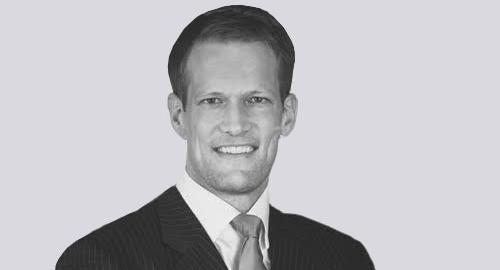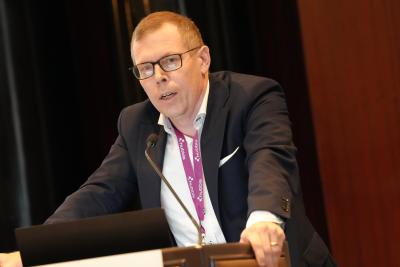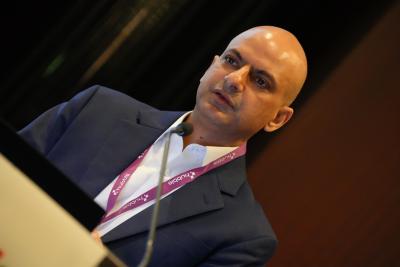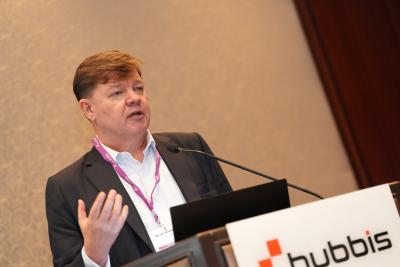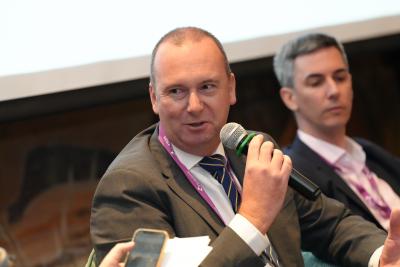M/HQ’s Yann Mrazek on the Evolution of Succession & Legacy Structures and Solution in the GCC
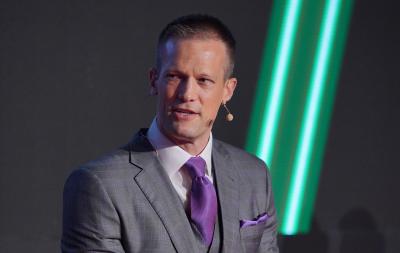
Yann Mrazek of M/HQ
Sep 25, 2020
Yann Mrazek, Managing Partner at UAE multi-services advisory firm M/HQ is a keen and consistent proponent of more professionalised succession and legacy planning amongst the GCC’s wealthy private clients and their families. He ‘met’ with Hubbis recently to update us on how the firm’s typical private client and their family have seen the pandemic as a catalyst for accelerating the adoption of more formalised succession and legacy planning. The foundation, relatively newly introduced into the region, is an ideal vehicle that has gained rapid traction, especially for those numerous families with their main business, real estate and other investments in the region.
Mrazek begins by observing that since the pandemic hit, suddenly the theoretical risks he and colleagues had been driving home to their private clients in recent years have become realities.
“Many entrepreneurs have experienced cash flow difficulties,” he reports, “and many have had to rapidly try to reinvent their business models, while at the same time realising that they were ill-prepared for such a crisis, and that their assets and families were perhaps not properly protected. We have therefore seen a dramatic rise in activity.”
Hitting a century
He reports that more than 100 foundations will be created this year in the UAE alone. “That is a huge number,” he says, “and by way of comparison, I believe that it took years for that type of number to materialise in Jersey, for example. And we estimate the foundation numbers will triple in 2021. In short, more and more people are realising that it is high time they look at their structures and organise their legacy and succession planning properly.”
Mrazek has in recent years seen the typical behaviour and attitudes of the past changing, but there is still a long way to go and great potential ahead.
“We know that only about 1 family out of 7 has some sort of documented legacy plan in place, while 40% had been happy to rely on law – and by law, we mean local law, domestic law. That represents a major risk of dilution of these core assets, which are the epicentre of GCC wealth. An estimated 30% of families are not even yet thinking about estate planning at all.”
Great opportunity
All this represents a wonderful opportunity for firms such as M/HQ, which operates from three locations in the UAE and from both the ADGM and DIFC. “M/HQ offers a multi-services platform catering to a broad spectrum of clients in the UAE,” he reports. “We offer a unique access to integrated corporate, tax and legal services, so whatever the complexity of the situation faced by our clients, we aim to provide them with simple, practical yet innovative solutions.”
The sums at stake are vast. Mrazek begins by explaining that over the next 10 years, an estimated USD1 trillion of assets is due to pass from one generation to another regionally, and that figure does not even factor in offshore assets.
A huge and growing need
“These are huge numbers and getting it wrong represents huge risk for these individuals and their families,” he says. “And in a world of greater global regulations, and with these families owning assets around the globe, it really has become a necessity to organise their affairs efficiently and transparently. We have seen a significant enhancement of this type of recognition since the Covid-19 crisis hit the world, and as issues of mortality have suddenly moved centre stage.”
He explains that the foundation is so popular as it is a registered vehicle, very close in spirit to a trust, but technically looking more like a company. “It's like a company that would not have shares, making it a perpetual orphan structure. We can give the analogy of a balloon that can hold assets underneath and carry them over time without any impact of probate, succession. The benefits are evident if you use a structure like this to hold high value assets, as these assets are effectively carved out from the P&L of an entrepreneur and his family, and thereby completely protected from attacks and safe kept over generations.”
Foundations rise in prominence
He reports that foundations are permitted under common law now in the DIFC, the ADGM and in the RAK International Corporate Centre. “These three centres primarily aim their proposition at the regional market and have proved their compatibility with all key regional asset classes, real estate, listed stocks, portfolios, shares in operating companies and so forth. Moreover, they have also proved efficient for both Muslims and non-Muslims. Of course, it is very important that they permit Muslims to actually segregate their assets and plan for something that is Sharia compliant but does not necessarily follow Sharia per se.”
Mrazek believes that it is better for the private clients to create foundations in the region as that is where most of their families’ business operations are located. “Cross-border structuring is very costly these days,” he reports, “and it's only pushing the problem abroad; foreign base fiduciary structures are also not recognised by Land Departments in the Middle East. If the real estate is here, if the business is here, it makes sense to structure them through an entity or tool that is available domestically. It can be more readily controlled by the family in a fast-paced environment at a price that does not insult their intelligence.”
Other solutions also valid
He does however agree that there are still perfectly legitimate reasons to set up a foreign based fiduciary structure, often in connection with foreign based assets. “In fact, we see a lot of families that have both,” he says, “the regional structure for regional assets, often cash generating and the foreign based fiduciary structure for foreign based investments and often longer-term plays like real estate, private equity or other investments. GCC families tend to structure abroad only for foreign-based assets.”
He says this means that there is a shift toward de-layering structures, bringing assets close to home, bringing management of those assets close to home rather than using what he terms “an artificial structure somewhere in some sort of a beachside paradise”.
Consolidation and planning
“We strongly advocate such structures,” he reports, “firstly for consolidation of assets, we know from experience that many families and entrepreneurs have not done this basic good housekeeping, as they are usually so busy with other matters. Moreover, the solutions available here are at very good prices, making it really worthwhile for these clients to address these issues, to ensure succession, continuity and to make sure that family assets are not whittled away or diluted. And on top of that, you have the asset protection element.”
“Alongside this development, Mrazek also highlights the growth of the family office in the region.
“There has been a substantial increase in the sophistication of these families, manifested for example by the rise of the single-family or multi-family office structures. It really helps with control but also educating and involving the second generation and other generations. And whereas we see that before the structure was somewhat a luxury, today it is often required to generate revenues to cover the expenses of often large families, and several generations. This has created significant additional business for those firms that provide solutions and services to them.”
M/HQ’s proposition
Mrazek reports that M/HQ has become in his view the largest multi fiduciary in the Gulf today, with around 60 people [100 if accounting for sister firm Re/think], and operating in three locations in the UAE as well as in the DIFC and ADGM. “Our core focus this year has been regional and domestic families and structuring and restructuring their affairs.” he reports, “Per publicly available data, we estimate we currently manage about 45% of the foundations that have been registered in the country. We were a very early entrant in this area, and it has paid dividends, as we have built competence and practical expertise that are second to none, we believe.”
He explains also that having offices in the DIFC and ADGM allows the firm to offer a one-stop service to their clients and to the advisors of those clients. “That makes us stand out, as there are less than a handful of other firms that can compete on that basis,” he states. “It’s a small field of competitors right now; it will grow surely, but at this stage, it is good to be part of this limited club of people in the know.”
Moving ahead apace
He closes with an observation on the development of the DIFC and ADGM. “Having the two financial centres has created a dynamism,” he says, “so for example for the first time in the Middle East, they have created incentive schemes until the end of this year for a regulated business or a single-family office to actually enter into the jurisdiction and start doing business here. This has been historically a jurisdiction where the barrier in terms of costs were high, but costs have come down since the pandemic, making it far more appealing to set up here.”
He explains that there had therefore been substantial demand from independent asset management firms entering the market. “They are coming in now,” he says, “because they recognise it won't be like this down the road in two or three years. They see they should come in now and capitalise on the perfect combination of lower cost and a greater range of available tools to promote to their clients. There is great growth potential here, and great room for growth, so the momentum is very positive.”
Whatever the tools and solutions employed for legacy planning, Mrazek says M/HQ is there ready to facilitate and provide the key services and optimal outcomes for those clients and families wanting to address these matters professionally. “We take immense pride in establishing strong and enduring relationships with our clients,” he says, “and as we and the region can now offer such a compelling suite of solutions and services at the right price points, we are more than optimistic about the future.”
Key Priorities
His first mission it to keep up the momentum of client servicing and client building. “Our job is to educate the entire market on the tools available and the new solutions, so that they can better understand how they might use those tools,” he reports.
His second key objective is to adjust to increasingly tougher regulations by having better processes, by understanding the environment comprehensively and by collaborating with regulators.
“There are additional regulations that will come in to regulate corporate services providers and other ancillary services providers like law firms,” he explains. “We want to contribute to that, we want to understand that faster and better because we know that it will increase the value of our business; it will further increase the perception and credibility of this jurisdiction worldwide. Key players must not only be competitive, but they must fully understand and support the government in what they are doing.”
His third priority is to expand the digitalisation of the business. “The pandemic has focused everyone’s attention on digital solutions,” he says, “and we want to make sure that we can continue to work efficiently, that our staff are happy with new work methods and processes, and of course that our clients are satisfied with the outcomes. We have adjusted rapidly – for example, I have not flown since November 2019, and before that I was on a plane every week. We are all adjusting, and we need to keep investing in these digital solutions for the new way of business.”
Getting Personal with Yann Mrazek
Mrazek was born in Fribourg, Switzerland from Czech parents who had emigrated to Switzerland. He was educated in Switzerland, and passed his law exams there, before moving to the Middle East 15 years ago.
“I have fond memories of coming here and no one wanting to give me a job, because no one wanted to hire a Swiss lawyer with no business experience, no experience in the Middle East and who could not speak Arabic,” he jokes. “But we soon got traction and here we are, working closely with local parties, the regulators and the government to help promote business and solutions here. Every time a proactive or pragmatic government listens and actually implements these types of initiatives and solutions there are big wins.”
He reports that he worked with the government on implementing a migration regime of companies from abroad to the mainland Dubai. Inbound migration to the UAE has become very popular, sparked by the implementation of ESR in low substance jurisdictions. “And The Wills and Probate Registry in the DIFC is something we have been part of since day one and even before its creation,” he says. “And of course, more recently we have the foundation regime. Additionally, I had the pleasure of serving as previous chairman of the Society of Trust and Estate Practitioners here for the Middle East, which has developed well. In short, the solutions, the progress and the pricing have all advanced significantly, which is wonderful news for everyone that has assets here or lives here, whether they are high net worth or super high net worth or even affluent.”
Mrazek is married and they have two children aged 12 and 10, both of whom were born in Dubai.
“And I am a very passionate foodie, and a wine enthusiast working toward becoming a connoisseur. We have a fully professionally equipped kitchen at home, a very well-stocked cellar, so we survived the lockdown pretty well,” he jests.
He says he also used to masquerade as a professional athlete until he was 29, in fact as a professional basketball player for 12 years in Switzerland.

Managing Partner at M/HQ
More from Yann Mrazek, M/HQ
Wealth Solutions & Wealth Planning
Wealth Advisory Services Expert Yann Mrazek Highlights the UAE’s Rising Global Prominence
Latest Articles
Wealth Solutions & Wealth Planning
Investment Migration, Residency & Citizenship – Key Trends Relevant to HNW and UHNW Private Clients


